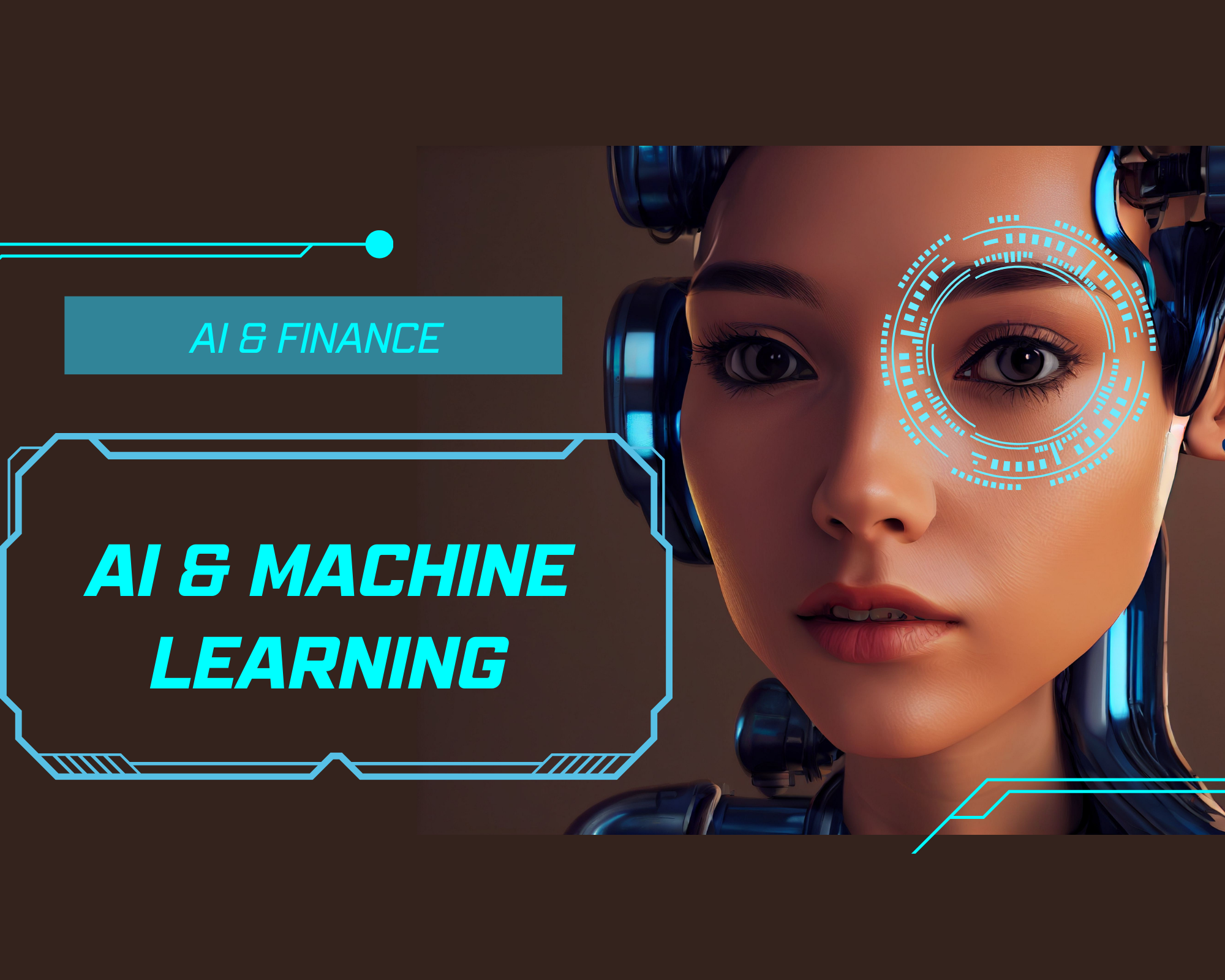As we enter 2025, the finance industry is changing fast. AI and machine learning are leading this change. They’re making financial services better and opening up new ways to grow.

You’re now part of a fast-changing world. AI is making financial services more efficient, secure, and tailored to you. Learn about the current state of AI in finance, its big changes, and what’s coming next.
Key Takeaways
- The finance industry is being transformed by AI and machine learning.
- AI is enhancing existing financial services and creating new opportunities.
- Financial services are becoming more efficient, secure, and personalized.
- The future of finance is heavily reliant on AI and machine learning.
- Innovation and growth are being driven by technological advancements.
The Current State of AI in the Financial Landscape
AI in finance is growing fast, with new uses every day. Banks and financial companies are using AI more. This is changing how they work a lot.
Key Technologies Driving Financial Innovation
Deep learning and natural language processing lead the way in finance. They help with better risk checks, customer service, and smarter decisions.

Market Size and Growth Projections
The AI in finance market is set to grow a lot. Reports say it will reach new levels soon. This is because more people want automation and data insights.
Major Players and Investments
Big banks are putting a lot of money into AI. JPMorgan Chase and Goldman Sachs are using AI for trading and customer service. This makes their services better.
How AI & Machine Learning Are Revolutionizing Finance in2025
AI and machine learning are changing finance in 2025. They bring new ways to work and new chances. Technology is key in this change.
Transformative Changes in Financial Services
AI and machine learning are making big changes in finance. They make customer service better, help manage risks, and make things run smoother.
For example, AI chatbots help with customer service. They work all the time and cut down on the need for people to answer simple questions.

The Convergence of AI and Traditional Finance
AI is joining forces with traditional finance. This mix creates new ways to do business and earn money. AI helps look at lots of data, uncovering insights we couldn’t see before.
This mix also leads to personalized financial products. These products are made just for each customer’s needs.
Measurable Impact on Financial Performance
AI has a big impact on how well finance works. It makes things more efficient, accurate, and satisfying for customers. You’ll see clear benefits in your financial work.
| Metric | Pre-AI Implementation | Post-AI Implementation |
|---|---|---|
| Customer Satisfaction | 80% | 95% |
| Operational Efficiency | 70% | 90% |
| Risk Management | 85% | 98% |
By using AI and machine learning, you improve your finance work. You also set your business up for success in the future.
Algorithmic Trading and Investment Strategies
Algorithmic trading, powered by AI and machine learning, is changing the world of finance. It uses advanced algorithms to make trades faster and more often than before.
High-Frequency Trading Enhancements
High-frequency trading (HFT) gets a big boost from AI-driven insights. This makes trading quicker and more precise. It helps make more money and lose less.
AI-Powered Portfolio Management
AI-powered portfolio management boosts investment returns. It looks at huge amounts of data and finds patterns humans might miss. This leads to smarter investment choices.

Sentiment Analysis for Market Prediction
Sentiment analysis, powered by machine learning, predicts market trends. It looks at news, social media, and more. This helps investors make better choices based on what’s happening in the market.
Using AI and machine learning in trading and investments gives a big advantage. It helps investors stand out in the financial world.
Fraud Detection and Security Advancements
AI and machine learning are changing how banks fight fraud. The finance world is growing fast, making strong security more important than ever.
Real-Time Threat Analysis Systems
Real-time threat analysis systems are a big step forward. They use AI to check transaction data for threats. This lets banks act fast to stop fraud.
Behavioral Biometrics and Authentication
Behavioral biometrics and authentication play a key role in security. They look at how people type or move their mouse. This helps banks know who is really using an account, making it harder for fraudsters.

Anomaly Detection in Transaction Patterns
AI finds odd patterns in transactions that might be fraud. This helps banks stop losses and keep customers’ money safe.
Thanks to these techs, the finance world can fight fraud better. This makes financial transactions safer for everyone.
Personalized Banking Experiences
AI is making banking more personal. Now, you get services that fit your financial needs and likes.
AI-Driven Customer Service Solutions
AI chatbots and virtual assistants are changing banking customer service. They offer 24/7 support for your questions and transactions. These AI tools are not just fast but also make your banking feel more personal.
Tailored Financial Products and Recommendations
AI looks at your financial habits and likes to suggest customized financial products and advice. This means you get offers that really suit you, making banking better.
| Feature | Traditional Banking | AI-Driven Banking |
|---|---|---|
| Customer Service | Limited hours, generic support | 24/7, personalized support |
| Financial Products | Standardized products | Tailored products and recommendations |
Voice and Facial Recognition in Banking
AI’s voice and facial recognition tech is boosting banking security and ease. They make secure authentication easier and make banking services simpler.
By using AI, banks are not just getting better. They’re also making banking more accessible and easy for you.
Risk Assessment and Credit Scoring Revolution
AI is changing the financial world, especially in risk assessment and credit scoring. Now, you can use new technologies for better and faster risk checks.
Alternative Data Sources for Credit Decisions
Old credit scoring methods use too little data, leading to wrong judgments. AI-driven systems use new data like social media and online actions. This gives a fuller picture of someone’s or business’s creditworthiness.
Predictive Analytics in Risk Management
Predictive analytics is key in today’s risk management. AI looks at past data and finds patterns. It predicts risks and helps institutions act early to avoid them. This way, you can make smarter loan choices.
Real-Time Credit Monitoring and Adjustment
Real-time credit checks are now possible. AI looks at transaction data and more, making instant adjustments to credit limits. This quick response helps avoid financial losses.
Regulatory Technology (RegTech) and Compliance
RegTech is changing how financial institutions handle compliance. It makes compliance more efficient and effective. As rules keep changing, financial firms face more pressure to follow them. RegTech helps by streamlining processes, cutting costs, and lowering risks.
Automated Regulatory Reporting
RegTech is big in automated regulatory reporting. It uses AI and machine learning to handle regulatory data. This cuts down manual work, lowers error chances, and ensures reports are on time.
AI for Monitoring Regulatory Changes
AI helps keep an eye on rule changes. It lets financial firms stay on top of compliance. These tools scan lots of data to spot important changes and notify firms. As RegTech expert David Smith says, “AI is changing how we handle compliance, making it quicker and more effective.”
“The future of compliance lies in the ability to adapt quickly to changing regulations, and RegTech is at the forefront of this revolution.”
Compliance Verification Systems
Compliance verification systems are key in RegTech. They use smart algorithms to check if transactions and processes follow rules. This ensures firms stay compliant and lowers the risk of breaking rules.
In summary, RegTech is crucial for better compliance in finance. By using RegTech, firms can meet rules, work better, and save money.
Blockchain Integration with AI in Financial Services
The mix of AI and blockchain is changing finance’s future. Together, they boost security, transparency, and efficiency in finance.
Smart Contracts and Automated Transactions
Smart contracts are a big deal in finance thanks to blockchain. They make transactions automatic and cut down on middlemen. With AI, smart contracts get smarter, handling complex tasks.
Decentralized Finance (DeFi) Applications
Blockchain and AI are teaming up in DeFi too. DeFi uses blockchain for finance without middlemen. AI adds predictive analytics and risk management to these platforms.
Cross-Border Payment Solutions
Blockchain and AI are making cross-border payments better. They use blockchain’s secure ledger and AI’s transaction analysis. This makes international payments faster and safer.
| Technology | Application | Benefit |
|---|---|---|
| Smart Contracts | Automated Transactions | Reduced Intermediaries |
| DeFi | Decentralized Financial Services | Increased Accessibility |
| Cross-Border Payments | International Transactions | Faster and Secure |
Emerging Technologies Shaping Finance Through2025
As we near 2025, finance is on the verge of a big change. New technologies are making old services better and opening up new chances and hurdles.
Quantum Computing Applications in Finance
Quantum computing might solve tough financial problems that regular computers can’t handle. It could change how we look at risk, manage money, and price financial products.
Natural Language Processing for Financial Analysis
Natural Language Processing (NLP) is used to dig through lots of financial data. This includes news, reports, and social media. It helps investors make smart choices and guess market trends.
Computer Vision in Financial Security
Computer vision is making finance safer. It helps verify identities, spot scams, and protect transactions.
Edge Computing for Real-Time Financial Services
Edge computing makes finance faster by handling data right where it’s needed. This cuts down on delays and makes services better. It’s great for quick trades and instant payments.
| Technology | Application in Finance | Benefits |
|---|---|---|
| Quantum Computing | Risk analysis, portfolio optimization | Enhanced accuracy, faster processing |
| NLP | Financial analysis, sentiment analysis | Better decision-making, predictive insights |
| Computer Vision | Identity verification, fraud detection | Improved security, reduced fraud |
| Edge Computing | Real-time financial services | Reduced latency, enhanced user experience |
These new technologies are changing finance for the better. They bring more efficiency, security, and smart choices.
Challenges and Ethical Considerations
The use of AI in finance raises big ethical worries and operational hurdles. It’s key to grasp these issues to fully use AI’s benefits while avoiding its downsides.
Algorithmic Bias and Fairness Issues
One big challenge is tackling algorithmic bias. AI systems can spread and even grow biases if they learn from biased data. It’s vital to make AI fair, especially in lending and credit scoring.
Data Privacy and Security Concerns
AI needs lots of data, which creates big data privacy and security worries. Banks must have strong security to keep data safe and follow rules like GDPR.
Regulatory Frameworks for AI in Finance
Creating solid regulatory frameworks is essential. These rules must tackle AI’s unique hurdles, like being clear, accountable, and fair.
Transparency and Explainability Requirements
Transparency and explainability are crucial in these regulations. A report says, “The lack of transparency in AI decision-making can erode trust and make it difficult to identify biases.” It’s important for AI to be understandable to build trust and meet rules.
By tackling these challenges and ethical issues, we can make sure AI is used right in finance. This will help create a fairer and safer financial world.
The Changing Role of Financial Professionals
AI is changing the finance world a lot. This means the jobs of financial experts are changing too. You’ll need new skills to keep up with these changes.
Skills Required in the AI-Enhanced Finance Sector
You’ll need to learn about data analysis, critical thinking, and solving problems. Knowing how to use AI tools will also be key.
Human-AI Collaboration Models
The finance future will see humans and AI working together. You’ll need to learn how to team up with AI to make smart choices and achieve goals.
Job Transformation and New Career Paths
AI will take over simple tasks, opening up new jobs. You could move into roles like AI development or maintenance. These jobs will focus on making big decisions and building customer relationships.
By getting the right skills, you can excel in the finance world with AI.
Conclusion: The Future of Finance in an AI-Driven World
As we look ahead to 2025, AI is changing the finance world in big ways. It’s opening up new chances for growth, innovation, and better efficiency. You’ve seen how AI and machine learning help with smarter trading, better fraud detection, and more personalized banking.
The finance world’s future will be shaped by AI’s growth and its mix with new tech like blockchain and quantum computing. We’ll see AI systems that can understand complex data, predict market moves, and offer quick insights.
To keep up, it’s key to know where AI in finance stands now and where it’s headed. By embracing AI, you can lead in the finance industry’s shift. The finance future is AI-led, and it’s a thrilling time to be part of it.
FAQ
How is AI transforming the finance industry in 2025?
AI is changing finance by making services better, opening new doors for growth, and making things more efficient and secure. It uses machine learning to do this.
What are the key technologies driving financial innovation?
Deep learning, natural language processing, predictive analytics, and blockchain are key. They help create new financial products and services.
How is AI being used in algorithmic trading and investment strategies?
AI boosts high-frequency trading and improves investment returns. It also predicts market trends, helping investors make smart choices.
What are the benefits of AI-driven fraud detection and security advancements?
AI helps fight fraud with real-time threat analysis and behavioral biometrics. It also detects anomalies, keeping financial assets safe and preventing losses.
How is AI personalizing banking experiences?
AI makes banking personal with AI-driven customer service and tailored products. It also uses voice and facial recognition, making banking easier and more friendly.
What are the emerging technologies shaping finance through 2025?
Quantum computing, natural language processing, computer vision, and edge computing are shaping finance. They offer new ways to improve services and create opportunities.
What are the challenges and ethical considerations associated with AI in finance?
AI faces challenges like bias, data privacy, and regulatory issues. These must be solved to ensure AI is used responsibly in finance.
How is the role of financial professionals changing with the adoption of AI?
Financial professionals need new skills to work with AI. AI automates routine tasks, opening up new career paths and changing the finance industry.




